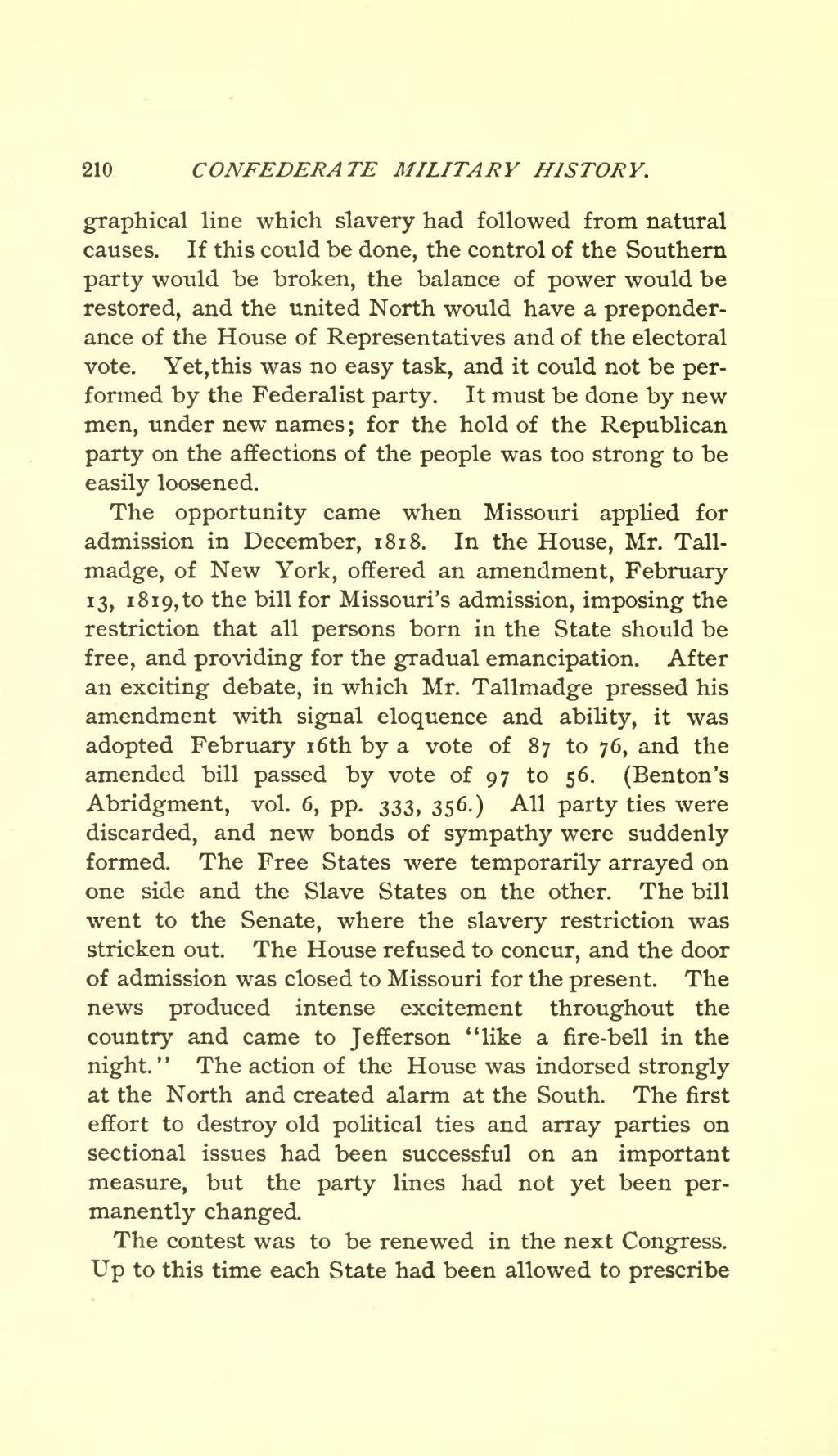graphical line which slavery had followed from natural causes. If this could be done, the control of the Southern party would be broken, the balance of power would be restored, and the united North would have a preponderance of the House of Representatives and of the electoral vote. Yet, this was no easy task, and it could not be performed by the Federalist party. It must be done by new men, under new names; for the hold of the Republican party on the affections of the people was too strong to be easily loosened.
The opportunity came when Missouri applied for admission in December, 1818. In the House, Mr. Tallmadge, of New York, offered an amendment, February 13, 1819, to the bill for Missouri s admission, imposing the restriction that all persons born in the State should be free, and providing for the gradual emancipation. After an exciting debate, in which Mr. Tallmadge pressed his amendment with signal eloquence and ability, it was adopted February i6th by a vote of 87 to 76, and the amended bill passed by vote of 97 to 56. (Benton’s Abridgment, vol. 6, pp. 333, 356.) All party ties were discarded, and new bonds of sympathy were suddenly formed. The Free States were temporarily arrayed on one side and the Slave States on the other. The bill went to the Senate, where the slavery restriction was stricken out. The House refused to concur, and the door of admission was closed to Missouri for the present. The news produced intense excitement throughout the country and came to Jefferson "like a fire-bell in the night." The action of the House was indorsed strongly at the North and created alarm at the South. The first effort to destroy old political ties and array parties on sectional issues had been successful on an important measure, but the party lines had not yet been permanently changed.
The contest was to be renewed in the next Congress. Up to this time each State had been allowed to prescribe
